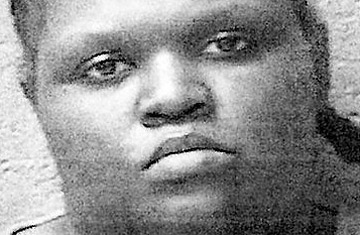
Shaquan Duley
Shaquan Duley, the South Carolina mother who allegedly suffocated two of her young children this week before submerging her car — with the bodies of her 18-month-old and two-year-old sons inside it — in a river, has been arrested and charged with two counts of murder. Investigators have not said yet whether Duley has been assessed by a mental-health practitioner. But in some cases of mother-on-child violence, experts note that the moms were suffering from postpartum disorders, which left untreated, can yield dangerous — and sometimes deadly — consequences. Diane Sanford, psychologist and co-author of Life Will Never Be The Same: The Real Mom's Postpartum Survival Guide talks to TIME about how these illnesses can sometimes cause mothers to snap.
What can you tell me about women who are driven to kill their own children?
In general, women who kill their own children tend to be not in their right minds, and typically are experiencing some sort of psychotic episode where they have delusions and think that there is something evil or wrong with their children. In other situations, the moms are convinced that life is evil or that the devil is after them.
Why do we see this more from women who have younger children?
Early and new motherhood is a particularly vulnerable time for women. We do see higher incidents occurring within the first year to first several years.
Is that something we can credit to postpartum depression?
Yes, but postpartum depression is different from postpartum psychosis. With postpartum depression, women do not kill their children unless they're having depression with a psychotic episode.
By definition, women are at risk for a postpartum disorder up to the first 12 months after childbirth. However, because many of these conditions go under- or untreated, they can be vulnerable for years. I'm not saying that I can tell that she [Duley] had postpartum psychosis because she had a one- and two-year-old, but I would say that she was clearly in a confused and desperate state of mind.
In Duley's case, it seems like she had gone to pretty great lengths to cover up what she had allegedly done. How do you determine whether or not psychosis is a factor in a case like this?
I think when the mother attempts a cover-up, people tend to believe that psychosis is not a part of it, but again, what we see is that women [suffering from postpartum psychosis] go in and out of psychotic thinking. When they come to, they're really horrified.
Some women, like Duley, who are charged with killing their children do not have prior criminal records. What is the right thing to do with them? Do we send them to jail?
The first thing to do is evaluate the women within a short time after the incident occurred by a licensed mental health practitioner who is trained to do assessments of people. You must make a determination of their mental health status. Then, I think based on that assessment, the woman needs to get treatment for any existing mental health problems. Once she is recovered, she is to be held accountable for what has happened. If it's determined that she was in her right mind, that she was in possession of her mental faculties, that this was premeditated, then you need to take that information into account.
I think in too many of these cases, women aren't evaluated at all or [investigators] wait for weeks or months, so the women have started on medicine. Of course, they're thinking clearly by then. You have to make a medical assessment at or near after the incident occurs so you can determine to what degree she's going to be held accountable.
Are postpartum disorders treatable?
Absolutely. New Jersey initiated a screening and early intervention program for pregnant and postpartum women, where hospitals and some doctors' offices are required to screen women for their emotional health during pregnancy and postpartum, up to their six-week check up. With screening and early intervention, we can identify vulnerable women and we can treat them with a combination of medicine, counseling and social support. If they get the treatment they need, there is close to a 100% recovery rate.
Are most states adopting a plan like this?
It's becoming a trend. I think that 38 states now have some kind of screening program. It's not necessarily mandated or required like it is in New Jersey; in some states, it's just recommended.
But if women admit to having postpartum depression or especially postpartum psychosis, aren't they at risk to lose their children?
Sure they are. That's why women even with postpartum depression hesitate to report their feelings and difficulties. Part of what we need to do as health providers is take appropriate steps to provide services that the women need and to appropriately provide a safe place for their children in the interim, if needed. It's more the family and friends that pick up on something being wrong than the mother, especially if she's delusional because then she's convinced that this distorted reality is the way things really are.
But do friends and families know whom to contact if they suspect a mother they know is slipping?
Most people don't, and that's why most of these women end up in these sort of unfortunate circumstances that then become the subjects of news stories. No, they don't know who to reach out to. But what we encourage in my book [for a new mom] is if it's been a period of a couple weeks where she doesn't feel like herself, that she may be experiencing depression or anxiety, call a health provider and that could be her OBGYN, a childbirth educator, a nurse in a hospital where she delivered. She needs to alert a health provider that she is not feeling right, and in addition, tell a friend or family member so that she can get the support she needs.
